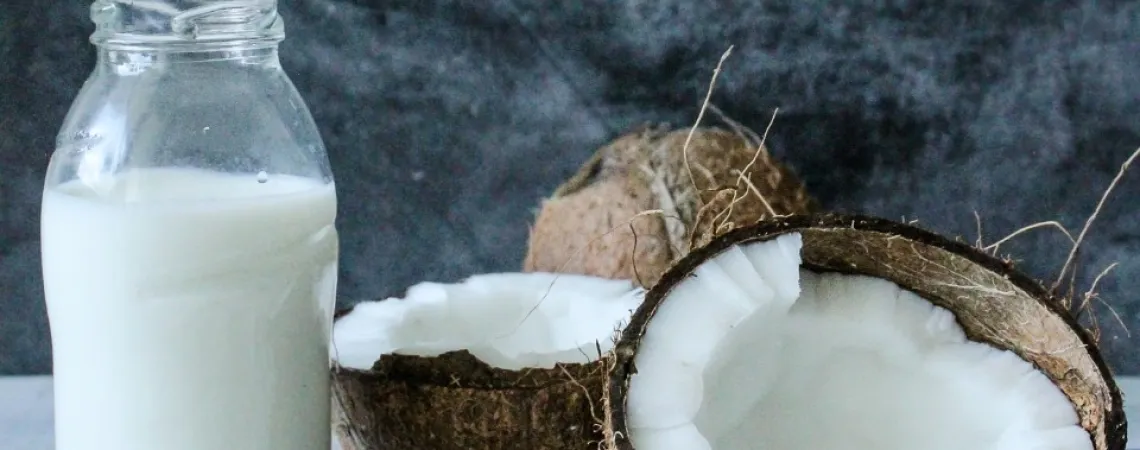
Oil is a topic that often sparks heated debates among nutrition enthusiasts. In this age of misinformation, with nutrition gurus and the prevalence of fake news, it's essential to provide clarity on the subject. In this article, we will explore the differences between coconut oil, olive oil, and butter and shed light on their effects on health. Let's delve into the world of oils and separate fact from fiction.
Coconut Oil vs. Olive Oil vs. Butter: The Battle Begins
Before we even dive into the details, many of you may have already taken sides. Some swear by the cult of butter, while others worship the temple of olive oil or the sacred cave of coconut oil (thanks to its popularity in the Paleo era). Brace yourself and read on—there may be something new to learn.
Is There an Oil that Will Save My Life?
First and foremost, it's important to understand that both plant-based and animal-based oils and fats undergo some form of processing, whether it's butter, margarine, olive oil, or the infamous coconut oil, used even for gargling by the most fervent believers.
The Popularity of Coconut Oil: Unveiling the Truth
Coconut oil gained its initial popularity due to its perceived heat stability compared to other oils. However, it's crucial to distinguish between unrefined coconut oil and refined coconut oil. Unrefined coconut oil is more natural but has a lower smoke point of 177°C, whereas extra-virgin olive oil can be heated up to 191°C, and virgin olive oil up to 216°C before reaching their respective smoke points. On the other hand, refined coconut oil (the more processed version) can withstand higher temperatures, up to 232°C, surpassing even olive oil. This distinction is often overlooked by coconut oil advocates.
The Verdict on Coconut Oil: A Closer Look
With the recent surge in popularity, numerous studies have finally examined the effects of coconut oil on health. Surprisingly, these studies have failed to demonstrate any significant health benefits of consuming coconut oil compared to other types of oils, except when compared to butter. Furthermore, a literature review published in March 2016 concluded that unsaturated oils have more beneficial effects on cardiovascular health than coconut oil.
What About Olive Oil?
Now, you may have found my assessment of coconut oil to be quite critical. But let's not forget that extra-virgin or virgin olive oil doesn't appear to reduce the risk of cardiovascular diseases either. In fact, extra-virgin olive oil has a neutral effect, meaning it neither increases nor decreases the risk of cardiovascular issues.
Natural Foods Always Triumph
Keep in mind that natural, unprocessed foods will always be the best option for maintaining good health. Real olives are better than olive oil, whole nuts are superior to walnut oil, and an actual avocado is more beneficial than avocado oil. Oils, in general, have a minimal effect on satiety, so regardless of the oil you choose, it should be used sparingly to avoid excess consumption.
A Nutritionist's Prediction: What Will Be the Next Trendy Oil?
Avocado oil!
Avocado oil has an excellent fat profile, rich in monounsaturated fats, and boasts an impressively high smoke point of 271°C. With such a high smoke point, there's no risk of reaching it since the average cooking temperature in a pan hovers around 230°C. If you were impressed by coconut oil, be cautious of the upcoming wave of avocado oil marketing.
Incorporating oils into your diet is a personal choice, but it's important to remember that moderation is key. No single oil can miraculously save your health or be a cure-all. It's the overall quality of your diet that matters.
Sources :
1. https://nutritionfacts.org/video/which-parts-of-the-mediterranean-diet-e...
2. https://nutritionfacts.org/video/olive-oil-and-artery-function/
3. https://academic.oup.com/nutritionreviews/article/74/4/267/1807413/Cocon...





